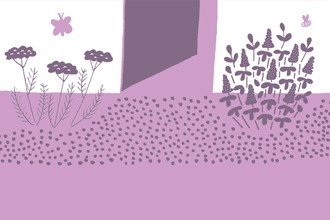Welcome to my first blog post as Carbon Reduction and Sustainability Officer, a brand-new position at Worcestershire Wildlife Trust that has been partially funded by the People's Postcode Lottery.
Although I've been with the Trust for three years, previously as a Natural Networks Officer, I've only recently moved to this role and I'm sure there's going to be lots for me to learn. So that you can learn with me, I plan to do a series of blog posts over the coming year to give details about how we are reducing our carbon and other greenhouse gas (GHG) emissions and making our operations more sustainable.
A distant issue?
Climate change can sometimes seem like a distant issue: we hear about how it is affecting Arctic temperatures, leading to wildfires in distant countries, or how it will affect sea levels in future years. But the climate crisis is at our door and its impacts are already being felt right here in Worcestershire. It's affecting the weather and wildlife all around us: changing the dates at which leaves emerge or flowers go into bloom and disrupting complex relationships between species, leading to extremes in both flooding and drought and increasing the risks posed by invasive species and diseases. The climate crisis and the nature crisis are inextricably linked and need to be solved together: if we want to help protect wildlife, we must reduce our GHG emissions, and if we want to mitigate and adapt to a changing climate we will need nature's help.




